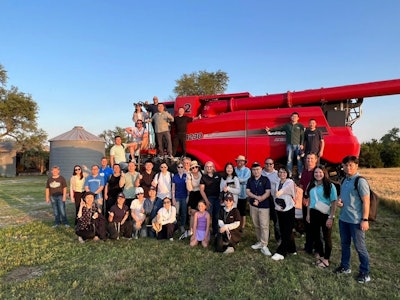
TheU.S. Grains Council(USGC) and its partners – theUnited Sorghum Checkoff Program(USCP),Kansas Grain Sorghum CommissionandTexas Grain Sorghum Producers Board– hosted its biennial Export Sorghum program in Houston, Texas,, June 11-13.
Export Sorghum brought together more than 90 sorghum buyers from 10 key markets around the world.
The event centered around creating networking opportunities while providing both domestic and international grain buyers insight on sorghum markets, trade opportunities, contract education and logistics. Export Sorghum provided buyers with information to help them make sorghum the smart choice for their grain needs.
“The council is proud to host this joint conference between the United Sorghum Checkoff Program and their state representatives,” said Jace Hefner, USGC manager of global trade. “Hosting this event right before harvest allowed buyers to get in the field to see the quality of this year’s crop in person and meet with the producers responsible for providing their sorghum supply each year.”
Conference attendees gained firsthand knowledge of U.S. sorghum production, nutritional profiles and industry-specific uses including sorghum as a feed grain, aquaculture applications, human consumption and use in pet food.
Attendees also learned about the export process, which organizers hope will result in increased demand and export opportunities for U.S. producers in participants’ markets.
Additionally, USGC-organized teams took part in tours before and after Export Sorghum, visiting Kansas and South Texas to see the U.S. sorghum value chain from seed to end uses.
“Export Sorghum is the premiere international marketing program for the U.S. sorghum industry,” said USCP executive director Norma Ritz Johnson. “Although we reach out to our international audiences consistently throughout the year, this event brings our international partners and buyers together in one event, allowing us to forge lasting relationships. In an industry built on relationships, Export Sorghum is an invaluable opportunity to come together on a global basis every two years.”





















